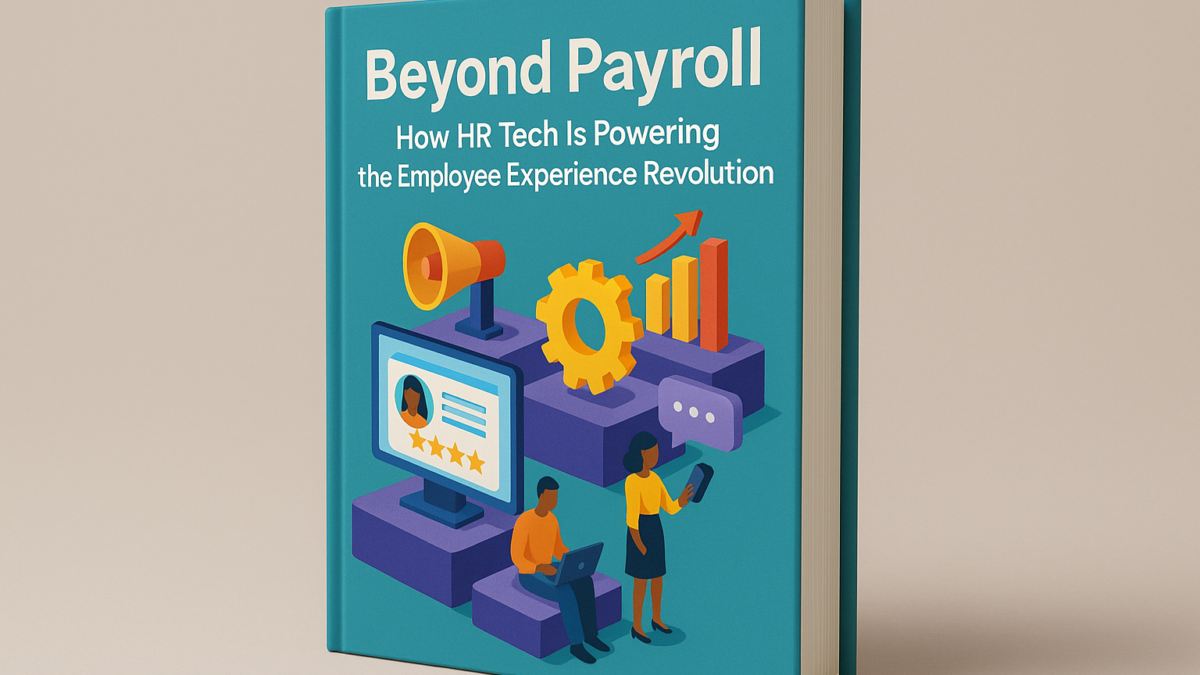Beyond Payroll: How HR Tech Is Powering the Employee Experience Revolution
In the past, HR technology was mostly associated with payroll, attendance, and compliance. Fast forward to 2025, and the landscape looks entirely different. Today’s HR tech is a powerful ecosystem that drives employee engagement, learning, well-being, and culture all under one digital roof.
As organizations face new challenges like hybrid work, skill shortages, and shifting employee expectations, HR tech is no longer a back-office function. It’s a strategic enabler of employee experience (EX) — the foundation of retention, innovation, and long-term growth.
From Transactions to Transformations
Traditional HR systems were built to manage — not inspire. They handled routine administrative tasks like payroll processing, attendance tracking, and benefits management.
Modern HR tech, however, focuses on experience over efficiency. Platforms now integrate AI, analytics, and automation to help HR teams understand employees holistically — their goals, motivations, and growth potential.
For example:
- AI-driven feedback tools analyze sentiment in real time.
- Predictive analytics forecast turnover risks before they occur.
- Learning management systems (LMS) personalize upskilling journeys based on performance data.
This marks a shift from HR as a compliance unit to HR as an experience architect.
Why Employee Experience (EX) Is the New Currency
Employee experience isn’t just about perks or flexible hours — it’s about how people feel, grow, and connect within the workplace. In fact, studies show that organizations prioritizing EX report:
- 2.2x higher employee engagement
- 1.5x higher productivity
- 25% lower turnover
HR tech plays a crucial role here by ensuring that employee-centric design is baked into every interaction — from onboarding to offboarding.
Imagine an employee journey where:
New hires are welcomed with AI-guided onboarding.
Managers use analytics dashboards to personalize growth paths.
Feedback, recognition, and career planning happen seamlessly through mobile apps.
This is the HR tech-driven employee experience revolution in action.
Key HR Tech Innovations Fueling This Shift
1. Employee Experience Platforms (EXP)
These unified systems bring together learning, engagement, performance, and communication tools into a single interface. They empower HR leaders to craft personalized, data-backed experiences that evolve with employee needs.
2. AI-Powered Recruitment & Onboarding
Machine learning algorithms can now identify best-fit candidates, reduce bias, and automate early-stage interactions. Once hired, onboarding chatbots guide employees through policies, training, and team integration — improving satisfaction from day one.
3. Continuous Performance Management
Gone are the days of annual reviews. Modern HR platforms enable real-time feedback loops, allowing employees and managers to set, track, and update goals dynamically — leading to transparent performance conversations.
4. Well-being & Mental Health Tools
HR tech integrates wellness apps that monitor burnout risk, promote mindfulness, and connect employees with mental health resources — making well-being a measurable part of performance.
5. Learning Experience Platforms (LXP)
LXPs leverage AI to deliver hyper-personalized learning — recommending courses, microlearning modules, and mentorships tailored to each employee’s aspirations and skill gaps.
HR Tech and Hybrid Work: A Perfect Match
With hybrid and remote work models becoming permanent, HR tech ensures connection without proximity.
Cloud-based collaboration tools, virtual recognition platforms, and digital town halls keep dispersed teams engaged and aligned.
Companies like Microsoft, HubSpot, and Salesforce are already using data-driven HR dashboards to monitor engagement and productivity — ensuring inclusivity and fairness even across distributed teams.
Challenges and Opportunities Ahead
While HR tech brings immense benefits, organizations must overcome challenges like:
- Data privacy concerns around employee analytics.
- Integration issues across multiple HR systems.
- Change resistance from traditional HR teams.
However, forward-thinking companies are addressing this by choosing unified HR ecosystems and investing in HR tech adoption training — ensuring technology complements human connection, not replaces it.
The Future of HR Tech: Predictive, Personalized, and People-First
The next wave of HR tech will focus on predictive insights — anticipating employee needs before they’re voiced. Imagine platforms that can forecast stress, suggest wellness breaks, or recommend cross-department opportunities based on skill gaps.
As AI, blockchain, and analytics converge, HR will become more proactive and humane creating organizations that aren’t just efficient but emotionally intelligent.
Conclusion
HR tech has officially moved beyond payroll. It’s now at the heart of business transformation building workplaces that are inclusive, engaging, and deeply human.
As employee expectations continue to evolve, companies investing in advanced HR technologies aren’t just improving operations they’re creating environments where people thrive, innovate, and stay.
See Also: How Whitepaper Syndication Is Powering Smarter B2B Marketing in 2025





